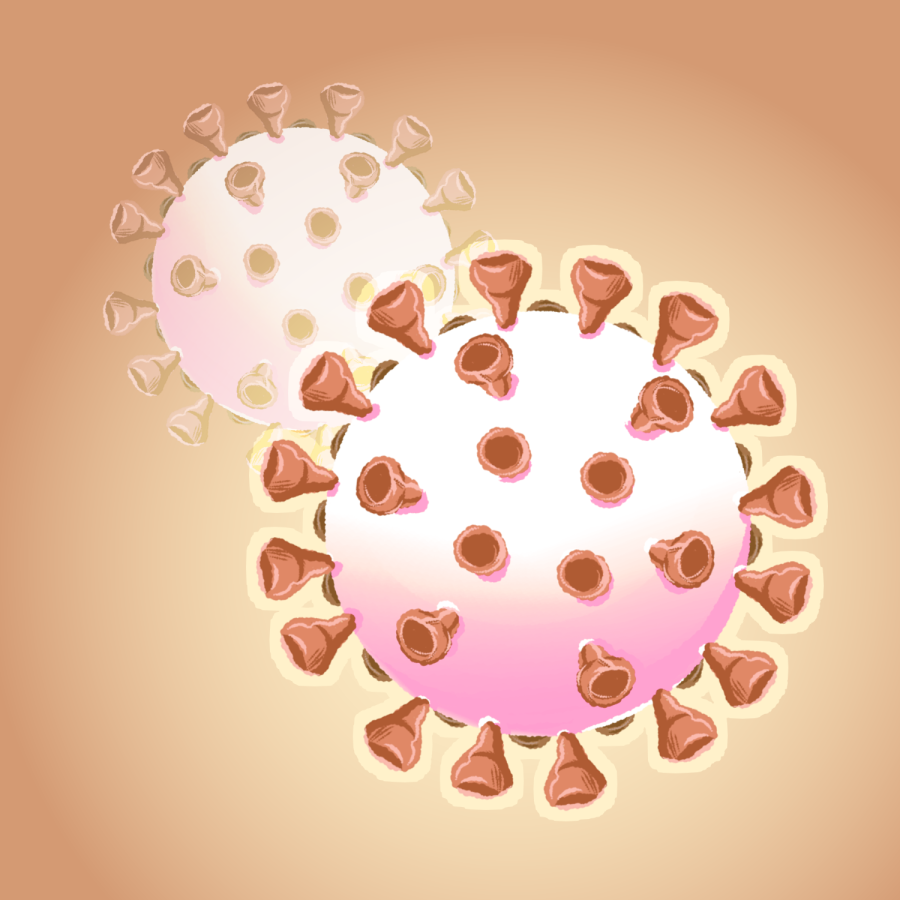New research into COVID-19 antibodies could increase efficacy of treatments
October 31, 2022
UT researchers took part in a study published Oct. 3 that combined different types of antibodies in order to increase the efficacy of COVID-19 treatments.
Antibodies are naturally occuring proteins the body produces in order to fight illness. The COVID-19 antibodies prevent the virus’ spike protein from binding to or penetrating the cells. Though some COVID-19 antibodies are produced naturally, the new combination antibody is created by researchers.
The study said that although current antibody cocktails are a “promising approach” to COVID-19 treatment, their success weakens every time a new variant emerges. To work toward solving this problem, researchers combined different classes of antibodies to help the treatments hopefully target a wider range of variants.
Each antibody has sections known as variable regions at the ends of their Y-shaped structures, said Patrick Byrne, one of the study’s authors. He said these regions are responsible for binding the antibody to the target region of the virus, which, in this case, is the spike protein of the COVID-19 virus. Creating antibodies with two different variable regions targets a larger portion of the virus’ spike protein, as each variable region binds to a unique part of the protein.
“There’s so much virus circulating now; there’s all this selective pressure on the virus to evade the immune system and other treatments,” said Byrne, a postdoctoral fellow in the department of molecular biosciences. “As new variants emerge, there will be this arms race between trying to develop therapeutics against the virus, and then the virus will find ways around it.”
Gregory Ippolito, a research associate professor in the molecular biosciences department, said in an email that the relatively new idea builds upon prior research done on bispecific antibodies.
“A lot of people right now are getting antibody treatments if they have a confirmed infection, and they’re at risk,” Byrne said. “That’s kind of what inspired this. And that was nothing new. Antibody treatments for viruses predate SARS-CoV-2.”
Byrne said this combination antibody treatment could potentially be more effective against newer COVID-19 strains.
“If the virus has some mutation that weakens the interaction between this one antibody, perhaps this other one can compensate for it. They might be able to interact synergistically,” Byrne said.
The diversity of the variable regions increases the binding ability of the antibody as a whole, in a concept known as avidity, Byrne said.
“Think of your two hands and how they can bind and hold onto an object, either singly or together in combination,” Ippolito said in an email. “The binding strength of both hands in combination (two antibody binding sites) defines the collective avidity of the interaction.”
Byrne said that the research is preliminary and that more work would need to be done to see if the bispecific antibodies protect against new variants. The researchers have combined the antibodies, but haven’t clinically tested the combinations yet.
“That’s the theory, that a bispecific antibody might be better at dealing with a variant,” Byrne said. “New antibodies are going to have to be developed continuously on a yearly basis, just as new vaccines will have to be developed continuously on a yearly basis to keep up with the changes in the protein sequences.”












